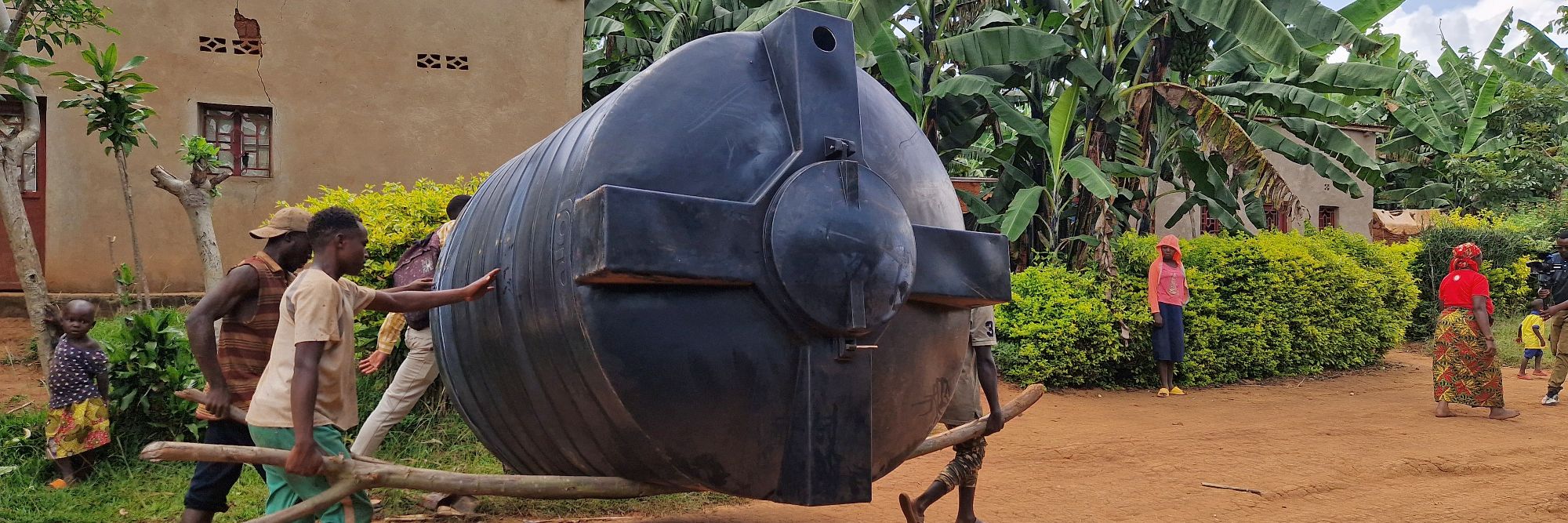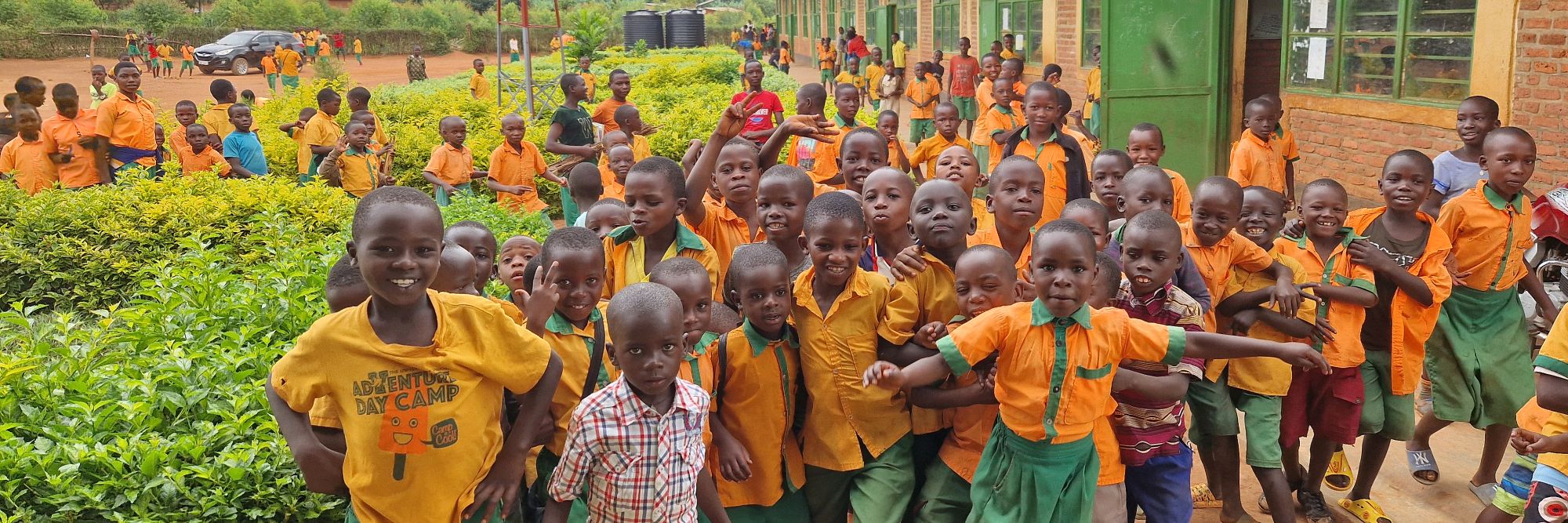Clean Water
Water is life
785 million people have no access to clean (drinking) water. Clean water is a prerequisite for maintaining health. A sufficient supply of water is necessary for productive agriculture, which in turn is important for nutrition and income generation. In the pilot village, different approaches to water provision are being tried out.


The higher parts of our pilot area have no access to clean drinking water except for a few people who can afford water deliveries. Especially during the three-month dry season, dirty water has to be hauled several kilometres in 10 or 20-litre canisters from the lake or river. This involves an ascent of 200 metres. The water then has to be boiled. Around 30% of households drink the water untreated. Due to the altitude, geological surveys commissioned by us have shown that there are no reliable aquifers at an accessible depth. The state water company is working hard to build a connection to the public water supply, but it will be several years before the project is realised.
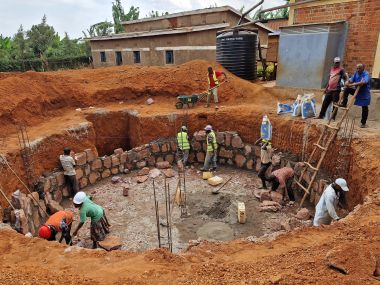
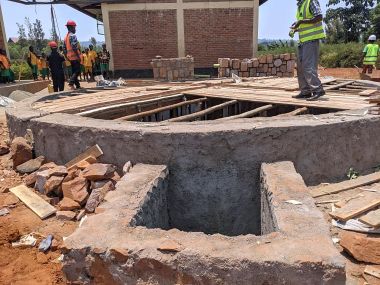
To bridge the time gap, we build or repair underground rainwater cisterns at schools and fit the systems with filters. As we have previously electrified the schools, we can use electric pumps and UV filters. Together with the Sparkassenstiftung and the local cooperative bank, we have set up a microcredit programme for rural households to install 5,000 litre rainwater tanks with ceramic filters. When the public water supply arrives, the infrastructure can still be used to irrigate the fields.
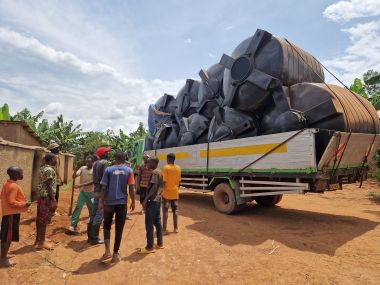
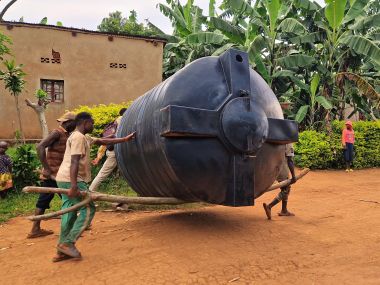
What clean water does
- Preventing diseases and even death from unclean drinking water
- Improving general hygiene and sanitation, e.g. by giving people the opportunity to wash their hands regularly.
- Avoiding heart and respiratory diseases caused by exhaust fumes that occur when water is boiled. Avoiding deforestation for firewood that is used to boil water.
- Elimination of the time-consuming and tedious transport of water in canisters over longer distances.
- Securing agricultural yields through irrigation.
- Increasing the annual crop cycle and thus increasing yields, food security and farmers' incomes.
- Enabling fish farming where appropriate
All our fields of action
News Clean Water - Hygiene - Sanitation

Ambassador and Mayor inaugurate drinking water facility!
9 December 2024
Ambassador and Mayor inaugurate drinking water facility!
Immediately after the visit to the vocational school, the German Ambassador and the Bugesera Cistrict Mayor inaugurated a drinking water system at Cyirabo Primary School.

100 rainwater tanks of 5000 litres each installed
22 March 2024
100 rainwater tanks of 5000 liter each installed!
In collaboration with Sparkassenstiftung, the local co-operative bank and local savings groups, 100 households were supplied with water in a pilot project. More are to follow.

The school has water again
11 August 2021
The school has water again!
The cistern of the primary school in Bisagara is repaired and filled with water!

